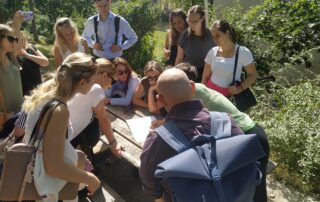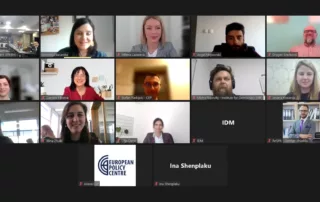News
Strengthening local engagement: WeBER 3.0 workshop empowers grantees for public administration reform
As part of the Western Balkan Enablers for Reforming [...]
Strengthening civil society organisations in the Western Balkans: A regional training initiative under WeBER Plus
WeBER Plus is a regional spin-off project of the [...]
Empowering local CSOs: WeBER 3.0 awards 21 grants
According to the final evaluation of the submitted applications [...]
The 13th meeting of the National Working Group for Monitoring Public Administration Reform in Serbia
The 13th meeting of the National Working Group for [...]
12th meeting of the regional WeBER Platform
The 12th meeting of the regional WeBER Platform: regional [...]
Q&A on the Call for Proposals – Local PAR Citizen Engagement Small Grant Facility
Western Balkan Enablers for Reforming Public Administrations – WeBER [...]
Local PAR Citizen Engagement Small Grant Facility: ONLINE INFO SESSIONS
Western Balkan Enablers for Reforming Public Administrations – WeBER [...]
Design thinking workshop in Vienna
Vienna, 3-4 July 2023 - Under the scope of [...]
WeBER closed-door meeting in Brussels: advocating for WB PAR Monitor 2021/2022
Thursday, 25 May 2023 - Today, at the European [...]
11th meeting of the regional WeBER platform
12 April 2023 – Today, an eleventh meeting of [...]
WeBER3.0 has started!
Western Balkan Enablers for Reforming Public Administrations – WeBER 3.0 [...]
Ninth meeting of WeBER National Working Group for PAR in North Macedonia
29 November 2022 - In North Macedonia, five grantees from [...]
Third WeBER Regional “Citizens First” Conference
Admirim Aliti, Minister of [...]
Responsible public administration as the basis of well-functioning state: Two-day conference in Tirana
A two-day conference on public administration reform (PAR), institutional [...]
Eight Meeting of the National Working Group for monitoring Public Administration Reform in Serbia
The 8th meeting of the WeBER National Working Group for [...]
The smaller the states, the bigger the issues? Challenges of achieving good administration
"Smallness does not justify corruption," said Professor Tiina Randma-Liiv, guest [...]















